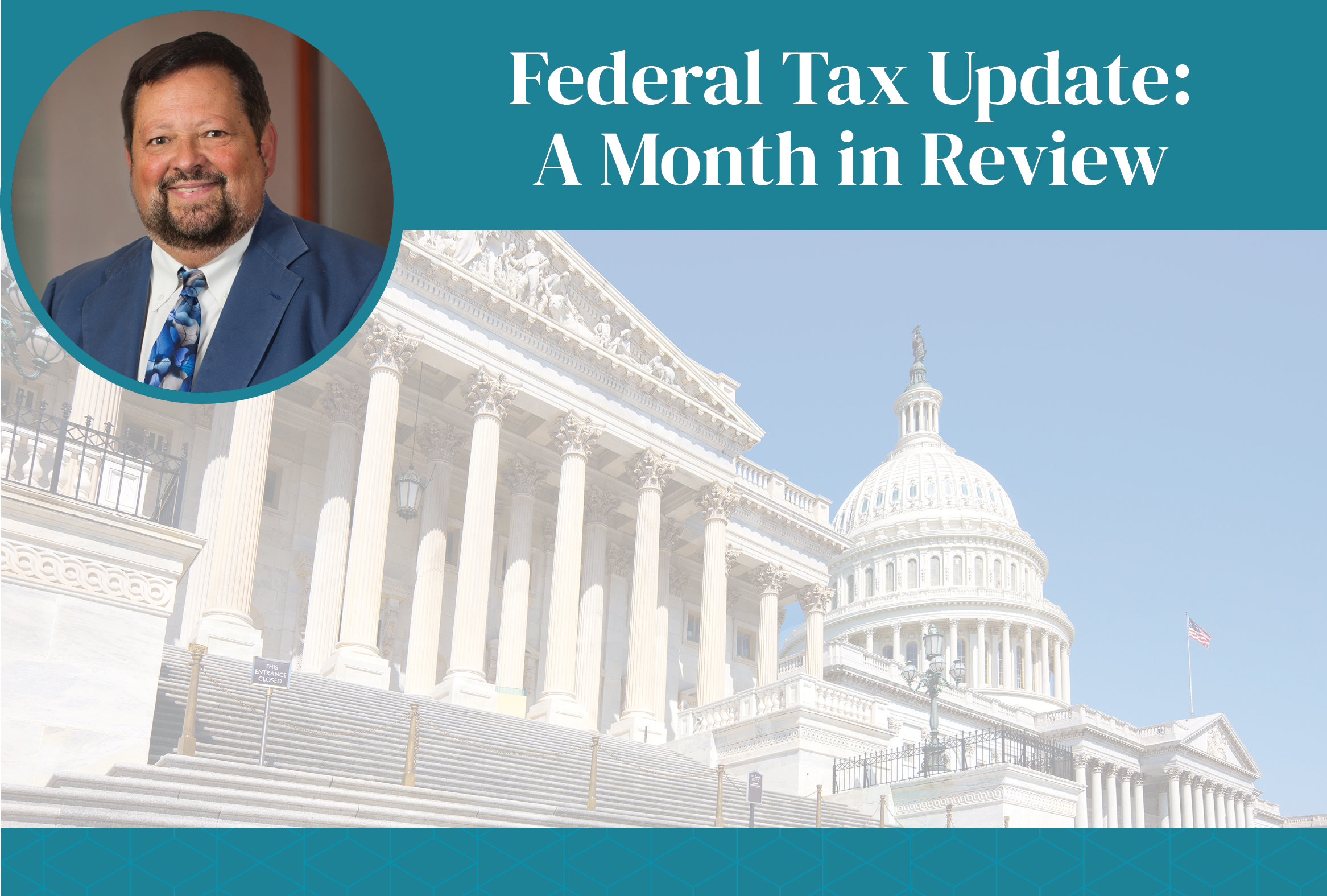February 1st, 2024
January Federal Tax Updates
Posted in: Tax Law Tagged: David S. De Jong

INDIVIDUALS
In United States v. Cacchione, 133 AFTR2d 2024-________, a Pennsylvania Federal District Court denied a Net Operating Loss carryback generated by an S corporation loss when the taxpayer could not prove that he had basis in the corporation to utilize the loss.
RETIREMENT AND ESTATE PLANNING
In Couturier v. Commissioner, TC Memo 2024-6, the Tax Court ruled that the “penalty” for excess IRA contributions is really a tax and, accordingly, is not subject to supervisory approval.
In Notice 2024-23, IRS indicated that, in the interest of “sound tax administration”, the one rollover in 12 months limitation will not apply to taxpayers impacted by failures in the Maryland Prepaid College Trust program who transfer funds to an alternative program.
BUSINESS
In Pangelina v. Commissioner, TC Memo 2024-5, the Tax Court rejected a taxpayer’s submission of random profit and loss statements and bank statements in an eight-year audit, sustaining virtually all of the adjustments made under audit in the case of a sole proprietor engaged in a tile-related business.
In Alvarado v. Commissioner, TC Memo 2024-1, the Tax Court found that a tax professional who also operated a used car business as a sole proprietor understated gross receipts but used the Cohan rule to determine cost of goods sold at 55 percent of sales while the tax returns claimed 82 percent and the IRS adjustment was based on 36 percent.
In Keating v. Commissioner, TC Memo 2024-2, the Tax Court disallowed payments made to a captive insurance company, the Court concluding that it was operated as a tax-free savings account rather than as a bona fide insurance company, designed only superficially to resemble a policy with premium pricing, premium payments and claims approval.
In Estate of Fry v. Commissioner, TC Memo 2024-8, the Tax Court concluded that transfers between related companies were contributions for equity and not debt due largely to conditional repayment, allowing additional basis to be considered for purpose of using flowthrough losses; the IRS position in this case was opposite its usual stance.
PROCEDURE
In Murrin v. Commissioner, TC Memo 2024-10, the Tax Court declined to overrule a decision two decades earlier and held that a literal reading of the law keeps the statute of limitations open indefinitely upon fraud by the preparer even if unknown to the taxpayer; a divided Federal Circuit Court of Appeals decision is to the contrary.
In United States v. Reyes, 133 AFTR2d 2024-468, a New York Federal District Court found that a couple willfully failed to disclose their Swiss bank account, concluding their statement on Schedule B that they had no interest in a foreign bank account showed that they “recklessly” disregarded the FBAR reporting obligation even though they stated that they did not review the tax returns.
In Dodson v. Commissioner, 162 TC No. 1, the Tax Court determined that it had jurisdiction to hear a case where the Petition was filed five months after the date of the Notice of Deficiency where IRS showed an incorrect date 14 months out as the last date for filing a Petition; IRS sent a corrected Notice one day after the first one but the law requires taxpayer consent to the recission.
In Chaisson v. United States, 133 AFTR2d 2024-407, the Fifth Circuit Court of Appeals agreed with a Texas Federal District Court that a suit for penalty abatement had to be dismissed as the taxpayers were unable to prove that they had fully paid the assessment prior to filing the refund suit; the taxpayers unsuccessfully argued that the tax liability had been fully paid by the due date of the return and prior to the assessment of penalties but a majority of the court required all additions to be paid as well.
In United States v. Beau, 133 AFTR2d 2024-________, a California Federal District Court determined that an IRS tax lien on the former husband attached to 50 percent of the value of the principal residence of a legally separated couple who continued to live together and kept switching legal title between joint and separate, concluding that the former husband maintained 50 percent equitable ownership.
In Thomas v. Commissioner, 162 TC No. 2, the Tax Court, allowing postings in a blog to be used as evidence against a taxpayer, denied equitable innocent spouse relief to a widow who posted about her travels to Europe and her Dior bag.




